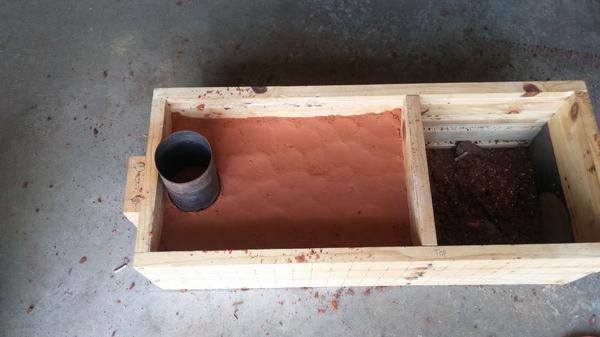The Facts About Alcast Company Uncovered
Table of ContentsUnknown Facts About Alcast CompanyThe 9-Second Trick For Alcast Company8 Easy Facts About Alcast Company DescribedAlcast Company for BeginnersThe 10-Second Trick For Alcast CompanySee This Report about Alcast Company
The refined difference hinges on the chemical web content. Chemical Comparison of Cast Light weight aluminum Alloys Silicon promotes castability by minimizing the alloy's melting temperature level and boosting fluidness during spreading. It plays a critical function in allowing detailed molds to be filled up accurately. Additionally, silicon adds to the alloy's strength and put on resistance, making it beneficial in applications where resilience is crucial, such as automotive parts and engine components.It likewise boosts the machinability of the alloy, making it easier to refine into finished products. In this method, iron adds to the overall workability of aluminum alloys.
Manganese adds to the stamina of aluminum alloys and improves workability (Aluminum Castings). It is commonly used in wrought light weight aluminum items like sheets, extrusions, and accounts. The existence of manganese help in the alloy's formability and resistance to cracking during construction procedures. Magnesium is a light-weight component that offers toughness and effect resistance to light weight aluminum alloys.
The 10-Second Trick For Alcast Company
It allows the production of light-weight parts with superb mechanical buildings. Zinc improves the castability of light weight aluminum alloys and assists control the solidification procedure throughout spreading. It enhances the alloy's stamina and firmness. It is often found in applications where detailed shapes and fine details are required, such as decorative spreadings and certain auto components.

The primary thermal conductivity, tensile strength, yield toughness, and prolongation differ. Select appropriate raw materials according to the performance of the target product created. Among the above alloys, A356 has the highest thermal conductivity, and A380 and ADC12 have the most affordable. The tensile restriction is the contrary. A360 has the very best yield strength and the highest possible elongation rate.
Fascination About Alcast Company

In precision spreading, 6063 is appropriate for applications where intricate geometries and premium surface coatings are vital. Instances consist of telecommunication enclosures, where the alloy's exceptional formability permits streamlined and visually pleasing layouts while keeping structural honesty. In the Lights Solutions sector, precision-cast 6063 parts create elegant and effective illumination fixtures that require detailed shapes and excellent thermal performance.
The A360 displays exceptional prolongation, making it excellent for complex and thin-walled elements. In precision spreading applications, A360 is appropriate for industries such as Consumer Electronics, Telecommunication, and Power Devices.
The Alcast Company Ideas
Its special homes make A360 an important option for precision spreading in these sectors, boosting product toughness and quality. Foundry. Aluminum alloy 380, or A380, is an extensively utilized casting alloy with numerous distinct features.
In precision casting, view publisher site aluminum 413 shines in the Customer Electronics and Power Devices markets. This alloy's premium rust resistance makes it an outstanding option for outside applications, making sure durable, resilient products in the mentioned sectors.
The Best Strategy To Use For Alcast Company
The light weight aluminum alloy you pick will significantly impact both the casting process and the properties of the last item. Because of this, you have to make your choice very carefully and take an enlightened strategy.
Establishing the most suitable light weight aluminum alloy for your application will certainly suggest considering a wide variety of features. These comparative alloy qualities comply with the North American Pass Away Spreading Association's guidelines, and we've split them into two categories. The initial classification addresses alloy characteristics that affect the manufacturing procedure. The second covers attributes impacting the residential properties of the end product.
How Alcast Company can Save You Time, Stress, and Money.
The alloy you choose for die casting straight influences several aspects of the spreading procedure, like how very easy the alloy is to collaborate with and if it is susceptible to casting flaws. Hot cracking, additionally referred to as solidification fracturing, is a typical die casting defect for aluminum alloys that can result in internal or surface-level splits or cracks.
Particular aluminum alloys are more at risk to hot splitting than others, and your choice should consider this. An additional typical defect discovered in the die spreading of light weight aluminum is pass away soldering, which is when the actors adheres to the die walls and makes ejection tough. It can harm both the cast and the die, so you must seek alloys with high anti-soldering properties.
Rust resistance, which is already a notable quality of aluminum, can vary considerably from alloy to alloy and is an essential particular to take into consideration depending on the ecological conditions your product will be exposed to (Foundry). Wear resistance is one more residential or commercial property typically sought in light weight aluminum items and can set apart some alloys